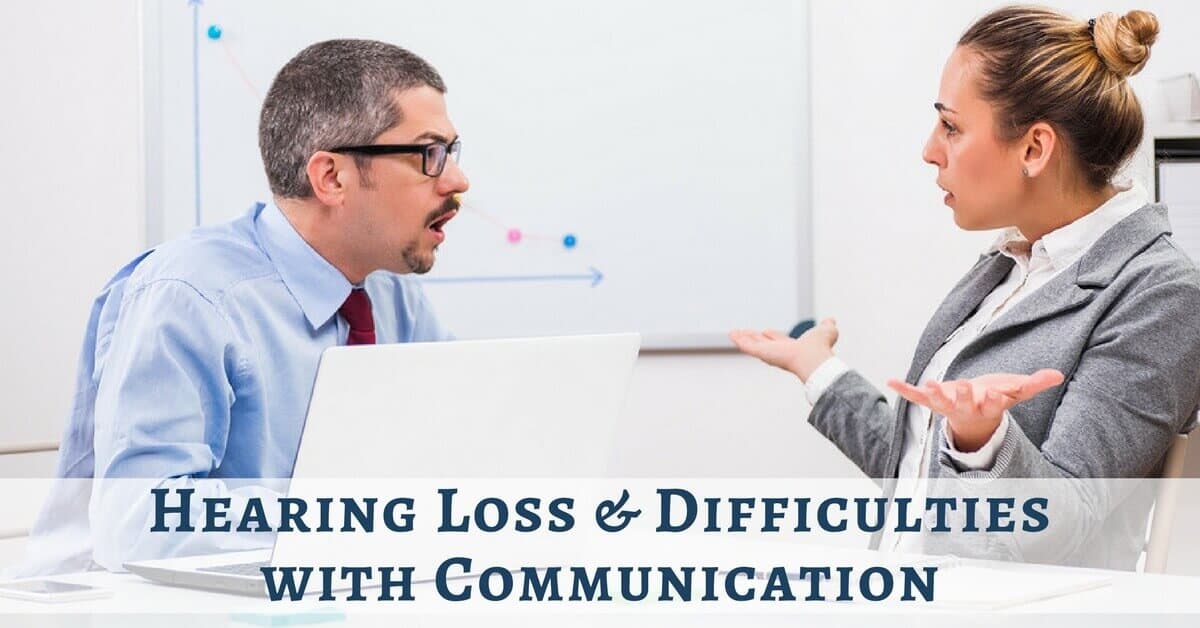
For people with hearing loss, communicating is one of the biggest challenges. Maybe chatting with your spouse in the living room isn’t too hard yet, but participating in the conversation when you’re out for dinner with your friends can be a real nightmare. You feel embarrassed that you can’t understand what’s being said, and you feel bad asking them to repeat themselves over and over again. We know that having difficulties with communication can make life complicated, and we’re here to help.
Causes of Hearing Loss
If you struggle to hear, you may be suffering from presbycusis, or age-related hearing loss. Half of seniors over the age of 75 have some form of hearing loss, and this is a normal part of aging. The cells in your ear and auditory nerve slowly break down with time, leaving you straining to hear.
Another common cause of hearing loss is noise induced hearing loss (NIHL) which is the result of being exposed to too many loud sounds. Those working in noisy sectors like manufacturing, construction, law enforcement, or the music industry are particularly at risk for this kind of hearing loss.
Hidden Hearing Loss
Hearing loss isn’t always as obvious as you might think. You have trouble hearing high pitched sounds like the birds chirping, or the voices of your grandchildren, but if you’re having a conversation in a quiet place, you can actually hear quite well. Maybe you’ve even had a hearing assessment, but in the hearing specialist’s quiet office you could hear just fine, so you were never diagnosed with a hearing loss or were fitted for a hearing device. However, in places with a lot of background noise, you may find that you struggle to hear.
If this is the case, you are likely suffering from hidden hearing loss, which is a little different than presbycusis, or age-related hearing loss. Dr. Gabriel Corfas, a researcher from the University of Michigan, found that this kind of hearing loss is caused by a breakdown in the cells that produce myelin, the substance that insulates the axons in the ear, allowing for easy transmission of sounds from the ear all the way to the brain. Without enough myelin, the auditory nerve is damaged, and can’t carry signals to the brain.
In quiet places, like your living room or the hearing specialist’s office, only a few cells are required to carry signals to the brain, so you can hear just fine. However, when you find yourself in a noisy place, you don’t have enough cells to carry all those signals, or to determine which are the important speech sounds. You’ll have a very hard time making sense of words and sentences.
Hearing Loss and Communication
Regardless of the cause of your hearing loss, if you’re struggling to hear you’ll have a difficult time communicating. Your hearing loss may be manageable in quiet places, but in noisy environments you find yourself completely lost, and unable to follow conversations. You feel like you’re playing a complicated game of fill-in-the-blanks, guessing at what’s being said, and hoping you don’t answer inappropriately. It won’t be long before you stop meeting friends for a drink or going out with your family for Sunday brunch since you’re embarrassed to admit you don’t understand, and afraid of saying the wrong thing.
Hearing Loss and Quality of Life
When communication breaks down, it’s only a matter of time before your quality of life suffers. With difficulties in communication, you may begin to feel isolated and lonely, and your relationships suffer. Conversations with your loved ones aren’t fulfilling, and you stop meeting up with friends. With a lack of quality communication, you’re more likely to experience anxiety and stress, or stop trying to communicate altogether. This increases your risk of depression, as well as more rapid cognitive decline, and an earlier onset of dementia.
How Hearing Aids Can Help
If you want to stay social for years to come, be able to participate in your granddaughter’s birthday, and enjoy spending quality time with family and friends, then visit us at My Hearing Centers for a hearing assessment. We’ll test your hearing in quiet and in noise, so we’ll have an accurate understanding of your hearing loss, and what device will serve you best. We’ll work together to find the perfect hearing aid that will allow you to communicate effectively in any situation.
